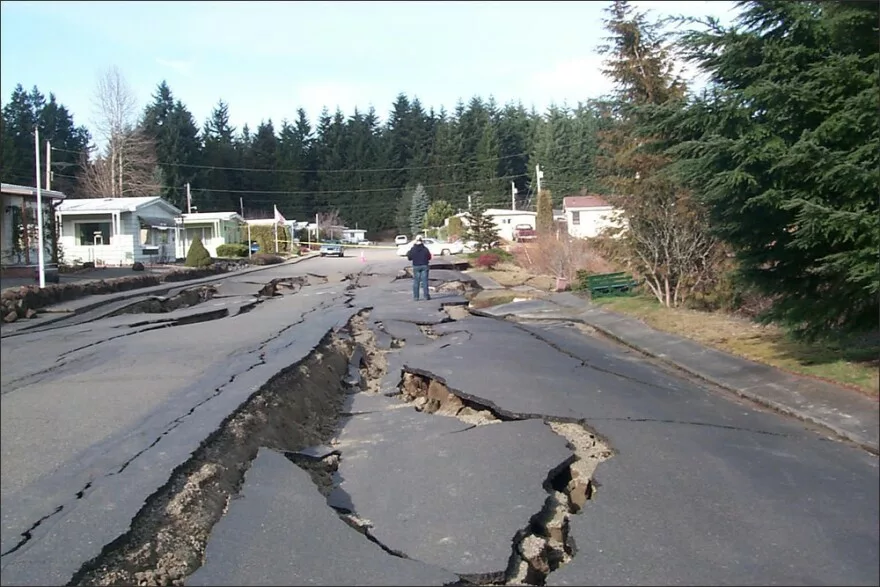
The National Science Foundation (NSF) has announced the funding of a new multi-institution earthquake research center. The Cascadia Region Earthquake Science Center (CRESCENT) will receive $15 million in funding over 5 years from the NSF to study the Cascadia subduction zone and improve earthquake resiliency and preparedness across the Pacific Northwest.
CRESCENT is the first research center of its kind in the nation to focus on earthquakes at subduction zones. EarthScope Consortium will be one of 16 institutions participating in CRESCENT, which will be led by the University of Oregon.
The Cascadia subduction zone extends from the coast of northern California to southern British Columbia, where the Juan de Fuca Plate dives beneath the North American Plate. The Cascadia subduction zone is capable of producing megathrust earthquakes up to a magnitude 8 or 9. Large earthquakes have historically occurred in Cascadia, such as the 1700 Cascadia earthquake that generated a tsunami that reached the coasts of Japan.
In addition to studying the dynamics of the Cascadia subduction zone and impacts of a major earthquake, CRESCENT will collaborate with community partners to build earthquake resiliency in the region and establish workforce programs to train the next generation of geoscientists and increase diversity in the geosciences.
EarthScope Consortium will provide support for data management, cyberinfrastructure, and workforce operations with CRESCENT through subawards to both SAGE and GAGE.
“Supporting CRESCENT highlights EarthScope’s ability to support PI and community driven initiatives in the CyberInfrastructure space,” said David Mencin, VP of Data Services at EarthScope Consortium. “As a science support facility, projects can leverage the existing cloud computing resources such as storage and compute, and more importantly leverage the expertise in cloud use and software development. This allows access to a broader pool of expertise and lower cost shared resources.”
“EarthScope is excited to be a participant in the project. The proposed work will leverage our extensive expertise in developing and running inclusive student-focused research programs, as well as our instructional design experiences in the online geophysics learning ecosystem,” said Michael Hubenthal, Education and Workforce Program Manager at EarthScope Consortium. “Both efforts target increasing the accessibility and use of the data generated from the CRESCENT project by a diversity of audiences.”
The collaborative earthquake hazards research, workforce, and community connections efforts from CRESCENT will better help the region prepare for “The Big One.” Beyond Cascadia, lessons learned from CRESCENT can be applied to other subduction zones around the world.
CRESCENT participating institutions include:
University of Oregon
Central Washington University
Oregon State University
University of Washington
Cal Poly Humboldt
Cedar Lake Research Group
EarthScope Consortium
Portland State University
Purdue University
Smith College
Stanford University
UC San Diego, Scripps Institution of Oceanography
University of North Carolina-Wilmington
Virginia Tech
Washington State University
Western Washington University

